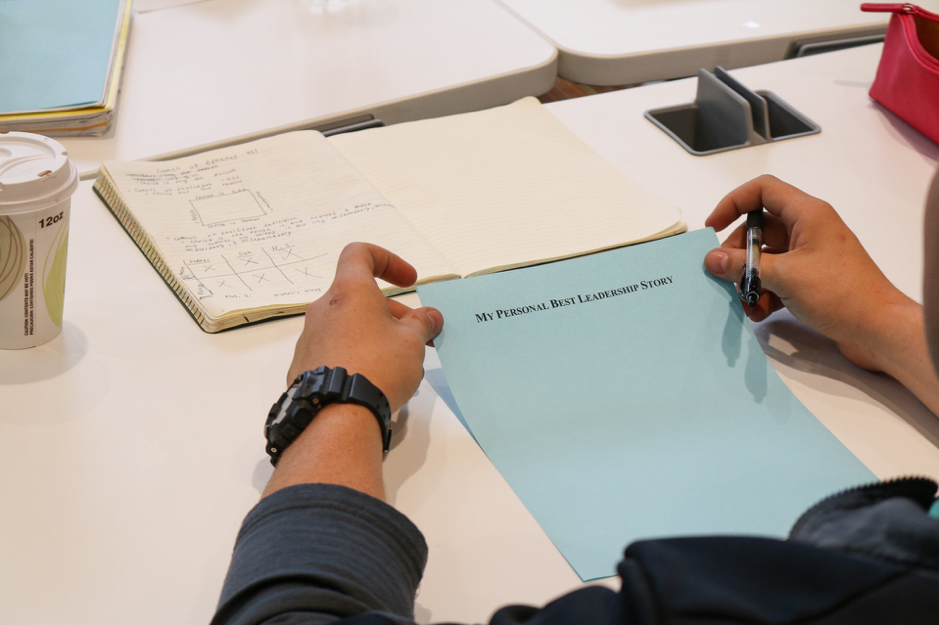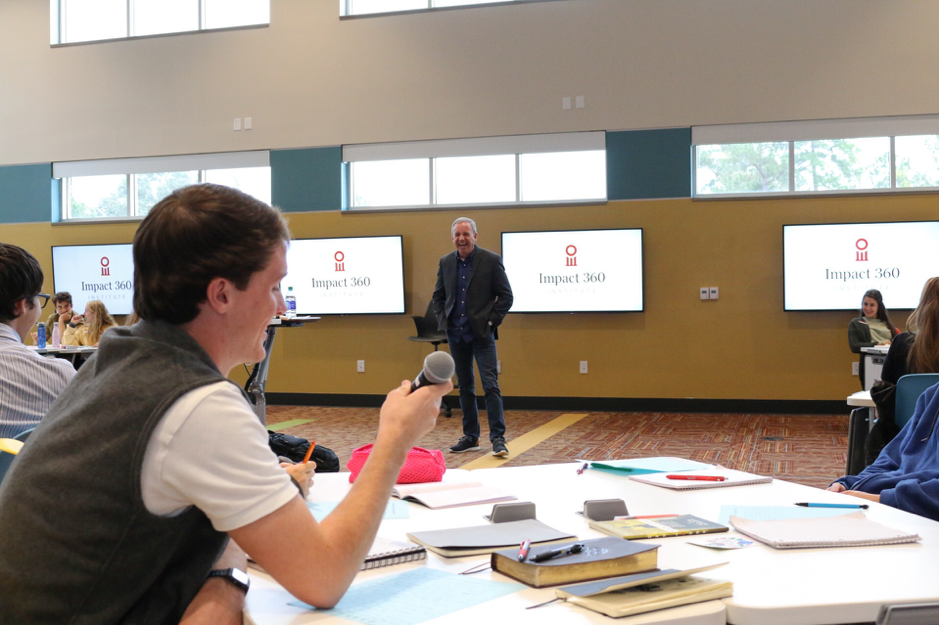Leadership has been a topic of interest to historians and philosophers since ancient times, with countless books claiming to offer insight into great leadership. However, if asked for your own definition of leadership would you be able to provide one?
 This was a question asked to the Fellows during our time with Dr. Samuel Oliver, president of Union University. Oliver emphasized the importance of being able to provide an effective definition of leadership. There is great importance in being able to own and define the terms in which we claim and use. We were met with this concept of coming to understand our ‘personal best leadership story’, allowing us mind space to begin to ponder what things were noticeable about the times in which we each believed we excelled at leadership. After sharing our stories, thoughts, and findings, Oliver met us with his personal definition: a subtle process of mutual influence fusing thought, feeling, and action to produce cooperative effort that is in service of the purposes and values of both the leader and the led.
This was a question asked to the Fellows during our time with Dr. Samuel Oliver, president of Union University. Oliver emphasized the importance of being able to provide an effective definition of leadership. There is great importance in being able to own and define the terms in which we claim and use. We were met with this concept of coming to understand our ‘personal best leadership story’, allowing us mind space to begin to ponder what things were noticeable about the times in which we each believed we excelled at leadership. After sharing our stories, thoughts, and findings, Oliver met us with his personal definition: a subtle process of mutual influence fusing thought, feeling, and action to produce cooperative effort that is in service of the purposes and values of both the leader and the led.
Whilst initially quite a mouthful, Oliver broke it down into five characteristics of leadership. Here they are…Leadership is:
-An action not a position
-Relational
-Leadership is a journey, not a destination
-There is a prevalent need for leaders in every area of society, and leadership can be learned

So how might one go about to doing this?
This proves applicable and meaningful to us all. God has gifted each of us with gifts and talents (Romans 12:1-8; 1 Corinthians 12:12-27). Primary to the living of a fruitful life, is understanding the ways in which God has gifted us and living out that giftedness under the Lordship of Jesus Christ. Striving to be a leader is essential for this cause, however it is harder than it sounds. Well, lucky for us, Oliver gave us five helpful tips that he has acquired and found helpful throughout his leadership journey.
Firstly, ‘Model the way’ to do this. So, one catchy phrase of this would be the concept of walk the walk and don’t just talk the talk. Practically live and pursue the goals and visions that you have declared as a leader. One might want to also go about reading biographies of other successful leaders to see how they achieved their goals, lived their lives and went about leading the people they led. Second, ‘inspire a shared vision’ rests on the idea that you can’t command commitment, but rather you have to motivate people and share your vision with others. Third, we must ‘challenge the process’. ‘Challenging the process’ provokes questions such as ‘how can we better sustain excellence’. One must look forward by finding ways to constantly pursue growth, learning, and continual reinvention. Fourth, ‘Enabling others to act’ encourages an attitude of collaboration and empowering others. Seeing the strength and talents of the individual proves to benefit the whole. Finally, ‘encouraging the heart’ demands that the leader has a grateful attitude, thanking those around them. Don’t be hesitant of celebration, always chose to celebrate and encourage those around. As Oliver said himself, ‘’The first job of a leader is to define reality the last is to say thank you.’’
Above it all, leaders are expected to exemplify integrity and be men and women of character and faith as they influence others for good. Without integrity it matters not what extent we model, inspire, challenge, enable, and encourage. We are all leaders, is just matters what we choose to do with that.
With zeal,
The Fellows
